It’s natural to want to support your loved ones when they’re struggling. However, you may have to make some pretty tough choices about what to do if you suffer any sudden financial shocks, like losing your job. Then, you might have to rebalance your budget and cut back on a lot of expenses, meaning your relatives may have to fend for themselves for a while.
Redditor u/PresidentPikachu asked the AITA community for a verdict on whether she was a jerk for refusing to financially support her husband’s parents with monthly payments of $100. Scroll down for the full story, including the advice the internet gave her. Bored Panda has reached out to the author for comment, and we’ll update the article as soon as we hear back from her.
Having to support your in-laws can be a huge financial burden when you’re dealing with major shocks to your family’s income

Image credits: Kateryna Hliznitsova / unsplash (not the actual photo)
One woman opened up about how she enforced her boundaries by refusing to pay her husband’s parents a monthly sum of money
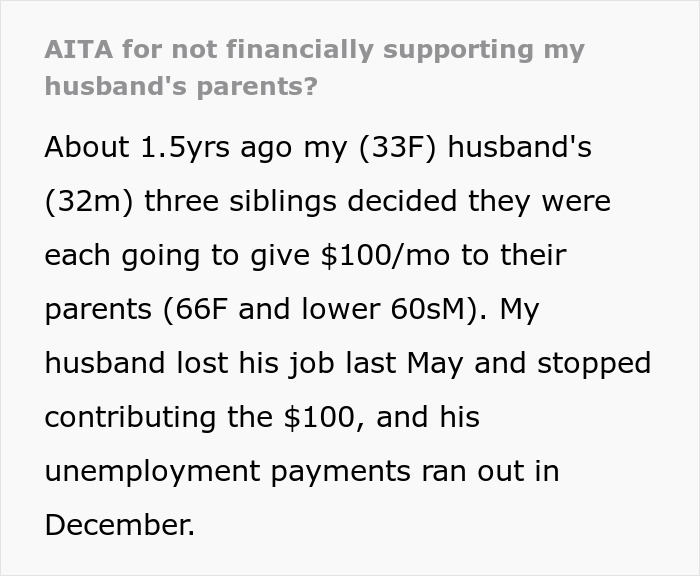


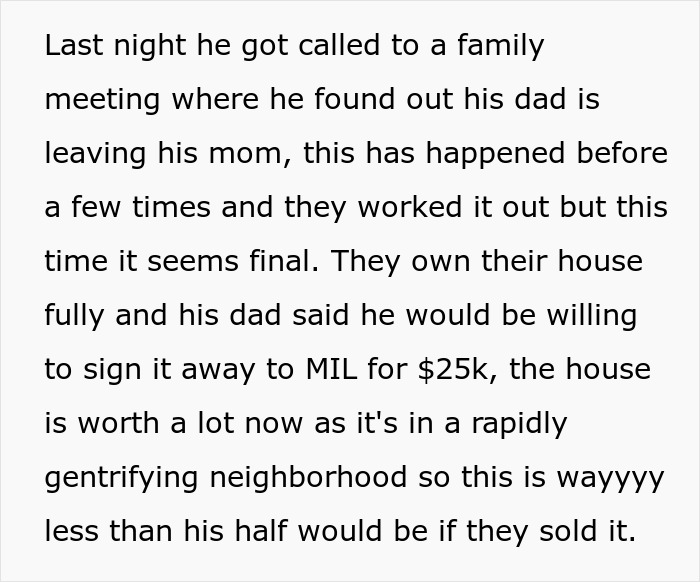

Image credits: Steve Bartells / unsplash (not the actual photo)
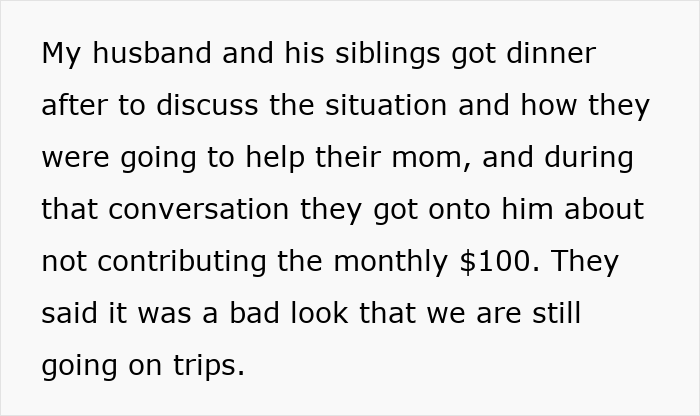
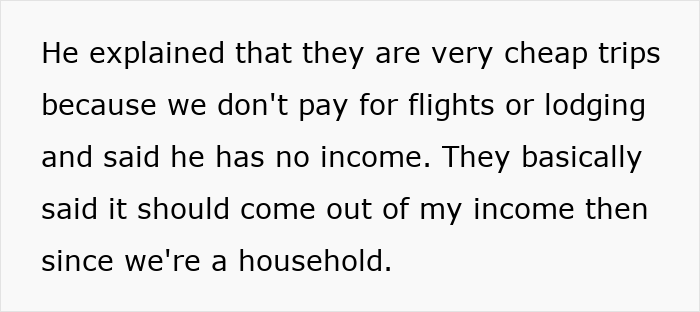
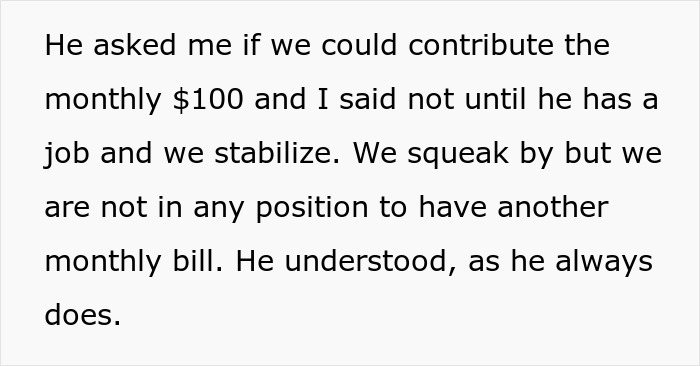
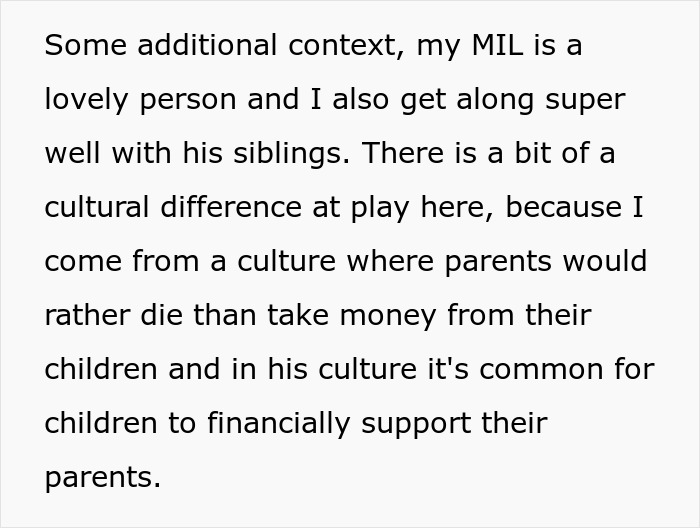

Image credits: Celine Ylmz / unsplash (not the actual photo)

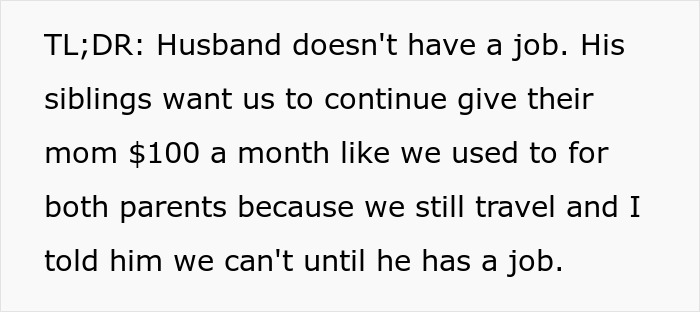
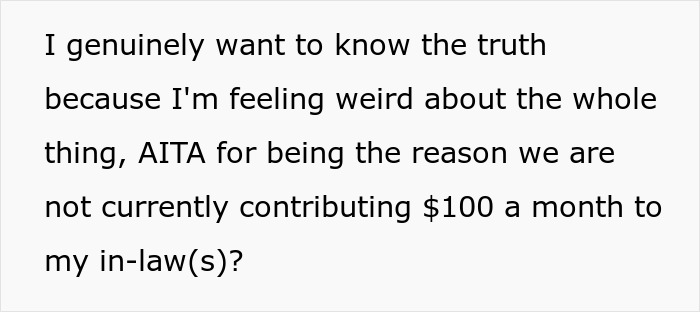
Later, the author answered some important questions people had

Image credits: Ramy Mamdouh / unsplash (not the actual photo)
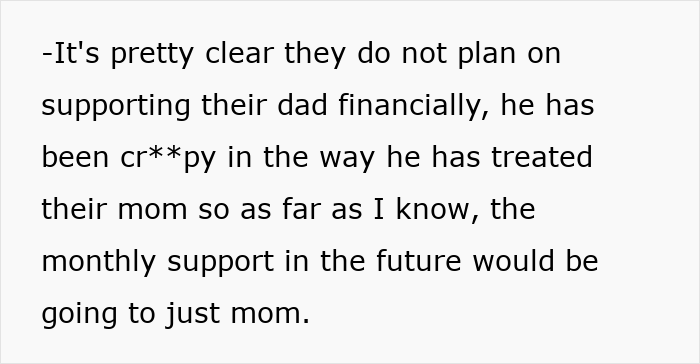


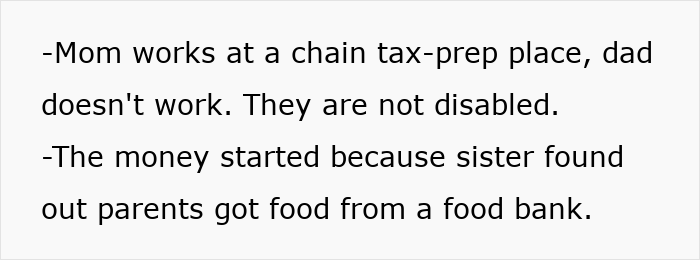

Image credits: PresidentPikachu
No matter how much you earn, you should always strive to spend less than your income and avoid lifestyle bloat
It depends entirely on your unique financial situation (your income, spending, savings, emergency fund, investments, debt, assets, etc.) and your relationship with your family whether or not you can afford to support them when they’re in need.
No matter your income, a good rule of thumb is to always live below your means and to earn more than you spend (or the reverse, to spend less than you earn). $100 per month is a lot of money. It can be the difference between meeting your financial goals or eating into your savings if you’re living paycheck to paycheck.
These added monthly expenses, even if paid with the best of intentions, are even more noticeable if you’ve suffered any recent financial shocks. Losing your job, having to suddenly repair your home or car, and paying for medical expenses can be a huge burden. And every dollar counts.
It’s possible to barely make ends meet even if your income looks massive on paper. Lifestyle bloat, bad spending habits, and growing costs can put even middle and upper-class earners at risk.
For instance, in a recent article, CNN reported that a whopping fifth of American households earning more than $150,000 per year are living paycheck to paycheck.
According to Bank of America, people living paycheck to paycheck to paycheck are those individuals who dedicate more than 95% of their household income to necessities: housing costs, childcare, gasoline, food, utilities, public transportation, and internet.
For one, higher-income households have larger, more expensive homes to look after and pay mortgages on. These expensive homes also have bigger property taxes, utility bills, and insurance costs.
Some people may be taking out bigger mortgages because they assume that they’ll be getting raises and promotions. Meanwhile, some high-income households have a lot of younger children, which puts them under more financial stress until they reach school age.

Image credits: Allef Vinicius / unsplash (not the actual photo)
It’s vital to have emergency savings that you can rely on during financial shocks like losing your job
It’s a really good idea for everyone to have an emergency fund they can fall back on during tough times. Naturally, the bigger this fund, the more flexibility you’ll have when it comes to finding a new job, upskilling, paying for unexpected expenses, etc.
HSBC explains that having emergency savings that you can fall back on is better than having to borrow money or make difficult financial decisions.
According to the bank, you should aim to have an emergency fund the size of at least 3 months worth of living expenses. Your goal should be to have enough savings to cover 6 months worth of expenses. For example, your rent or mortgage payments, as well as food and transportation costs.
“You may want to open a separate savings account for your emergency fund so you’re not tempted to dip into it. Ideally, you want to be able to access the money quickly, if you need it, so you don’t want it to be in a locked savings account or invested,” the bank advises.
“A good way to stick to your savings plan is to set up a standing order to move money into a savings account each month. If you schedule it for the day you get paid, you’ll lower the temptation to spend it. You can also put extra money into your savings account whenever you want. If you have money left over at the end of a month, why not add it to your savings?” HSBC suggests.

Image credits: Vitalii Khodzinskyi / unsplash (not the actual photo)
Having boundaries and saying ‘no’ when you genuinely can’t afford to help someone in need is healthy and honest
Boundaries are essential to have and to enforce if you want your relationships to be healthy. Though you can be more flexible with your boundaries when it comes to your closest family members and significant other, it’s still important that there’s mutual respect.
To put it bluntly, saying ‘no’ is perfectly healthy and viable. Sure, family is family and you should strive to help out your loved ones if they sincerely need it. However, you still have to take care of yourself before taking care of anyone else. It’s not beneficial for anyone if you start going into debt or can barely put food on the table just so you can financially support someone else.
You don’t necessarily have to contribute money to be helpful, though. If you see that your relatives are struggling with their money, you can provide them with some practical advice to improve their financial literacy.
For instance, if their spending is off the hook, you can help them make a realistic budget. If their income is negligible, you can help them improve their CV, apply for better jobs, practice their interviewing skills, improve their technical and soft skills, etc.
Honestly, coaching someone and helping them land a better, more purposeful, higher-paying job with good benefits can be better than just sending them monthly checks to help them pay their rent. Charity is good. That being said, charity doesn’t always involve money.
How would you navigate a situation where your in-laws asked you for monthly payments to help them make ends meet? Have you ever had to choose between your welfare and that of your loved ones? What would you do if you were in the post author’s shoes? We’d love to hear your thoughts on this. Feel free to share your take in the comments section at the bottom of this article.

Image credits: Jordan González / unsplash (not the actual photo)
The woman engaged with some of her readers, opening up even further and sharing more context
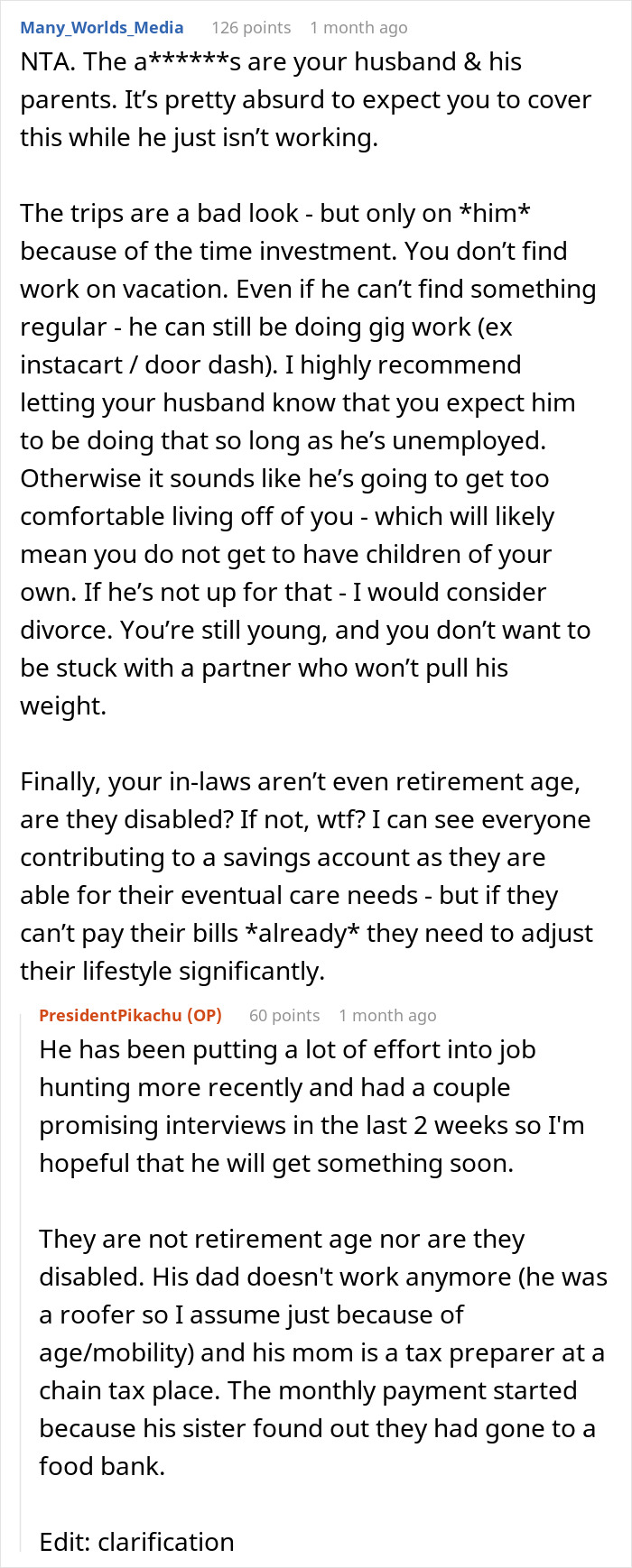


Many readers were very supportive of the woman’s approach. Here’s how they saw the situation
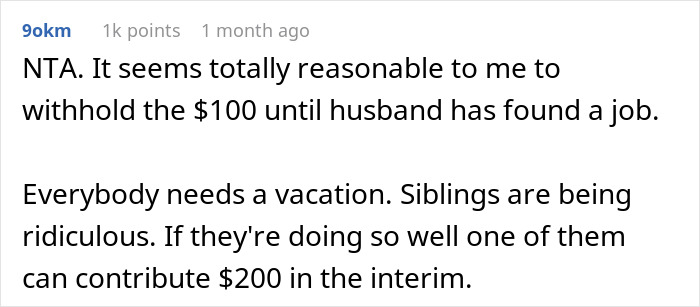
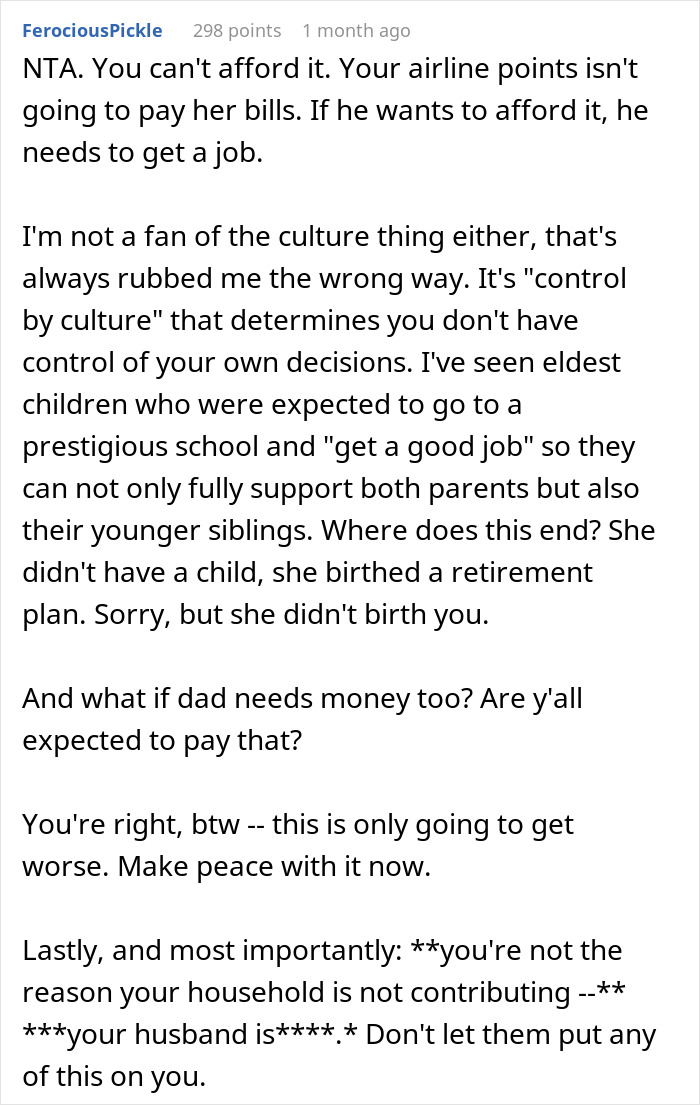




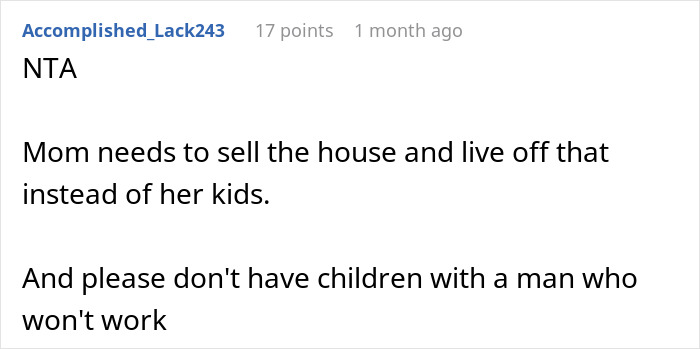


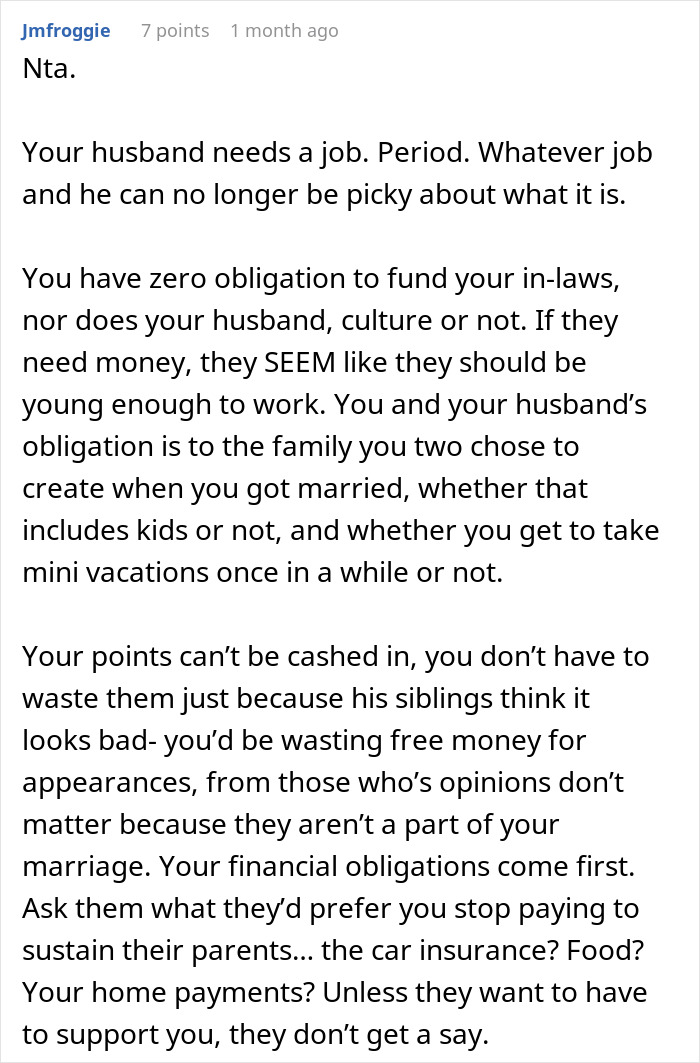

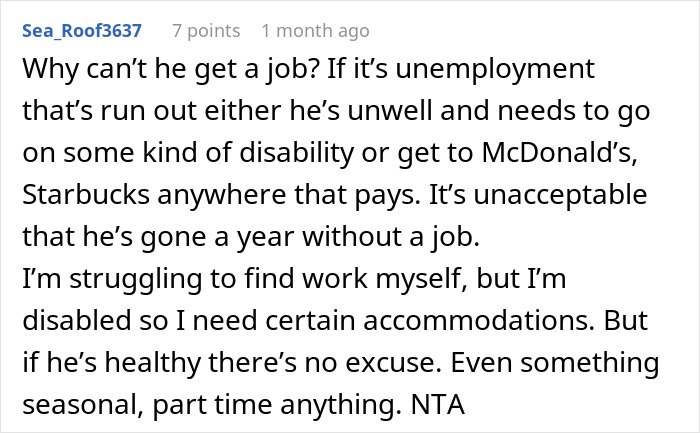


from Bored Panda https://ift.tt/f0rc9dN
via IFTTT source site : boredpanda